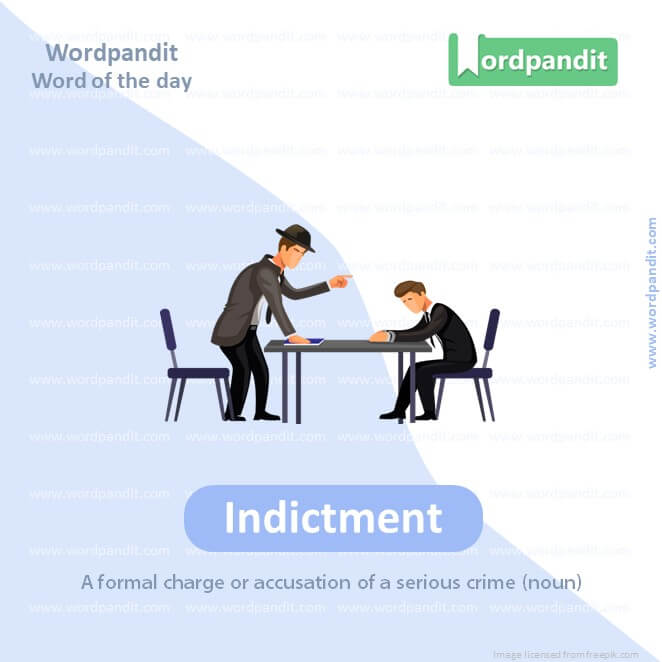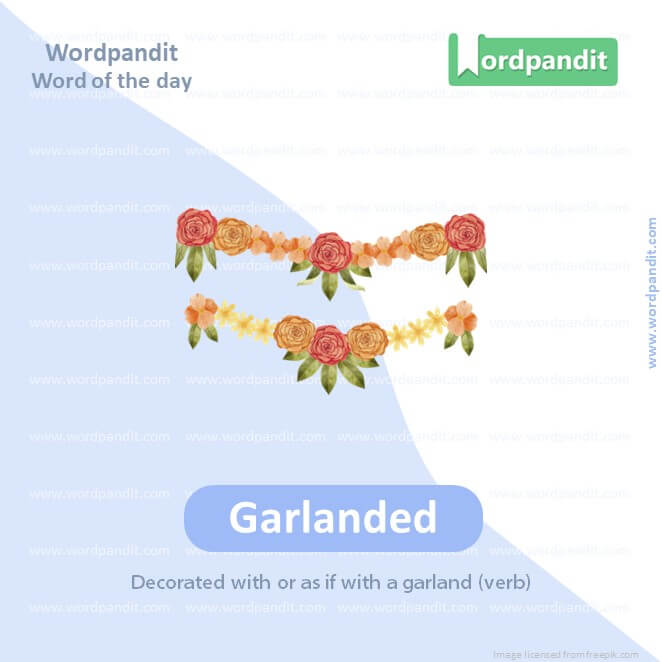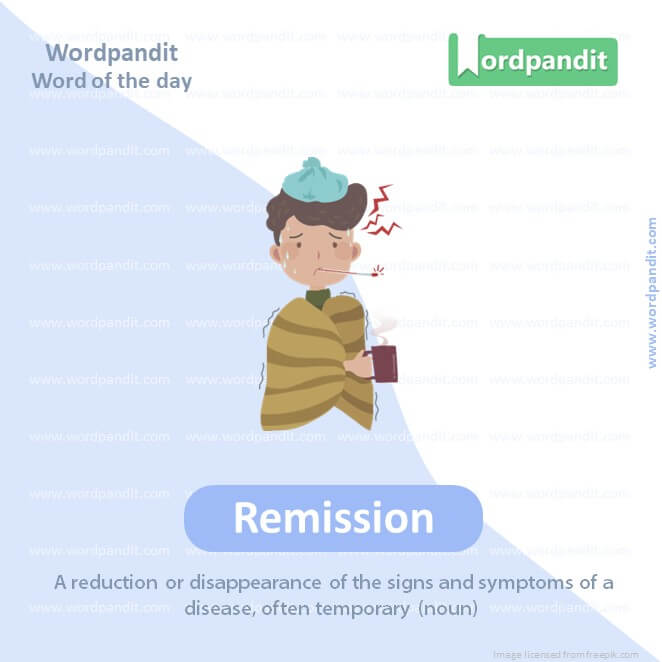Daily Vocabulary Words: Enhance Your Lexicon with Leading Newspapers & Publications
Welcome to the Daily Vocabulary section at Wordpandit!
Our mission is straightforward: to bring you essential vocabulary words featured in top newspapers and publications worldwide. By focusing on words you’ll encounter in renowned sources, we aim to help you enhance your vocabulary effectively and practically.
Our selection includes words from:
– The New York Times
– The Washington Post
– Scientific American
– BBC
– The Guardian
– Psychology Today
– Wall Street Journal
– The Economist
– The Hindu
– The Times of India
– The Economic Times
– Hindustan Times
– Live Mint
– The Indian Express
– And many more.
We are committed to your vocabulary development. Simply visit this section regularly and explore the daily posts. This is your go-to repository for commonly used words, providing significant practical benefits by familiarizing you with vocabulary from the leading publications listed above.
Make it a habit to visit our website daily and expand your lexicon with words from top newspapers and publications.

WORD-1: INFIRMITIES
CONTEXT: The verdict is based on the ground that Gujarat did not have any jurisdiction to decide on granting remission to convicts sentenced in Maharashtra.
SOURCE: The Hindu
EXPLANATORY PARAGRAPH: Imagine when you’re playing outside and you get a little tired because you’re not feeling strong that day. Sometimes, people get very tired or weak because of their age or because they are sick. These weak or sick feelings that stop them from doing things easily are called “infirmities.”
MEANING: Conditions of being weak, ill, or having a lot of health problems, especially because of old age (noun)
PRONUNCIATION: in-FIRM-i-tees
SYNONYMS: weakness, frailty, ailment, disability, illness, debility, impairment
USAGE EXAMPLES:
1. The elderly man struggled with various infirmities that made it hard for him to walk.
2. Despite her infirmities, she always tried to stay active.
3. The doctor treated his infirmities with care and patience.
4. The infirmities of old age can sometimes slow people down.

WORD-2: ENVISAGED
CONTEXT: These new Indian penal laws have been envisaged to shed the colonial law legacy and, at the same time, rid the penal laws of infirmities and update them to modern thinking in the field.
SOURCE: The Hindu
EXPLANATORY PARAGRAPH: When you close your eyes and imagine something you want to happen in the future, like playing with a new toy, that’s like “envisaging.” It means to picture or think about something that you believe will happen.
MEANING: To imagine or expect something in the future (verb).
PRONUNCIATION: en-VIZ-ij-d
SYNONYMS: imagined, envisioned, anticipated, conceived, foreseen, visualized, predicted
USAGE EXAMPLES:
1. She envisaged a world where everyone had enough to eat.
2. The architect envisaged the new building as a modern masterpiece.
3. He envisaged a future full of possibilities.
4. The team envisaged winning the championship next year.

WORD-3: INDICTMENT
CONTEXT: The Supreme Court of India verdict quashing the orders releasing 11 men convicted for the heinous gang-rape and murder of several members of a family during the Gujarat pogrom in 2002 is an unequivocal indictment of the State government.
SOURCE: The Hindu
EXPLANATORY PARAGRAPH: Imagine someone breaking the rules in a game, and then another player tells everyone about it so that the person can be stopped. When grown-ups do something wrong and need to go to court, telling about what they did wrong is called an “indictment.”
MEANING: A formal charge or accusation of a serious crime (noun)
PRONUNCIATION: in-DITE-ment
SYNONYMS: charge, accusation, allegation, prosecution, complaint, blame, censure
USAGE EXAMPLES:
1. The indictment against the businessman was announced by the court.
2. He faced an indictment for fraud after the investigation.
3. The grand jury returned an indictment after hearing the evidence.
4. The indictment was a result of months of undercover work.

WORD-4: GARLANDED
CONTEXT: A disgraceful story that began with the Bharatiya Janata Party government facilitating their premature release and the freed men being garlanded by their supporters has now ended with the Court directing them to return to prison within two weeks.
SOURCE: The Hindu
EXPLANATORY PARAGRAPH: Think of a special party where you get a beautiful necklace of flowers put around your neck to celebrate you. When someone is honored or decorated with flowers, it’s called being “garlanded.”
MEANING: Decorated with or as if with a garland (verb)
PRONUNCIATION: GAR-lun-did
SYNONYMS: adorned, crowned, decorated, festooned, wreathed, embellished, honored
USAGE EXAMPLES:
1. The winning team was garlanded with flowers after the match.
2. She was garlanded for her achievements at the ceremony.
3. The statue was garlanded with fresh roses.
4. They garlanded the bride with jasmine flowers.

WORD-5: REMISSION
CONTEXT: The verdict is based on the ground that Gujarat did not have any jurisdiction to decide on granting remission to convicts sentenced in Maharashtra.
SOURCE: The Hindu
EXPLANATORY PARAGRAPH: Imagine being sick and then slowly getting better, feeling less and less sick each day. When someone’s illness gets much better for a while, it’s called “remission.”
MEANING: A reduction or disappearance of the signs and symptoms of a disease, often temporary (noun)
PRONUNCIATION: ri-MISH-un
SYNONYMS: improvement, alleviation, recovery, abatement, reduction, reprieve, subsidence
USAGE EXAMPLES:
1. The doctor was happy to see the cancer go into remission.
2. After months of treatment, her symptoms were in remission.
3. The patient experienced a remission and felt stronger each day.
4. The disease was in remission, giving him hope.
WORD-6: USURPATION
CONTEXT: In citing the Court direction as the reason for it to pass orders in favour of the convicts, the State government was guilty of usurpation of power, the Bench said.
SOURCE: The Hindu
EXPLANATORY PARAGRAPH: Imagine someone taking your toy without asking and saying it’s theirs now. When someone takes something that doesn’t belong to them, especially power or control, it’s called “usurpation.”
MEANING: The act of taking power or control by force or without the right to do so (noun).
PRONUNCIATION: yoo-sur-PAY-shun
SYNONYMS: seizure, takeover, appropriation, annexation, assumption, encroachment, grab
USAGE EXAMPLES:
1. The king’s usurpation of the throne caused unrest in the kingdom.
2. The general’s usurpation of power led to a rebellion.
3. The usurpation of authority by the new leader shocked everyone.
4. The company was accused of the usurpation of intellectual property.
WORD-7: REITERATION
CONTEXT: It is a timely reiteration of the core principles that animate exercise of the power to grant remission — that it should be fair and reasonable and based on a set of relevant parameters such as whether the crime involved affected society at large, whether the convict retained the potential for committing similar offences or is capable of reform.
SOURCE: The Hindu
EXPLANATORY PARAGRAPH: Sometimes, when you hear something important, your teacher might say it again and again to help you remember. Saying something over and over is called “reiteration.”
MEANING: The act of repeating something for emphasis or clarity (noun).
PRONUNCIATION: ree-ih-tuh-RAY-shun
SYNONYMS: repetition, restatement, recap, echo, reiteration, reinforcement, duplication
USAGE EXAMPLES:
1. The teacher’s reiteration of the rules helped the students remember them.
2. His constant reiteration of the safety guidelines was crucial.
3. The reiteration of the instructions made the task easier.
4. She appreciated the reiteration of the key points in the presentation.
WORD-8: PROACTIVELY
CONTEXT: A disturbing fact is the failure of the Air India management to act proactively on a report by the instructor who trained the captain.
SOURCE: The Hindu
EXPLANATORY PARAGRAPH: Imagine you’re getting ready for school and you decide to pack your bag the night before so you don’t forget anything. Doing something before it becomes a problem or before someone asks you to is called being “proactive.”
MEANING: Taking action ahead of time to deal with something before it becomes a problem (adverb).
PRONUNCIATION: pro-AK-tiv-lee
SYNONYMS: preemptively, preventively, anticipatively, foresightedly, ahead of time, preemptorily, actively
USAGE EXAMPLES:
1. She acted proactively to finish her homework before the weekend.
2. The team worked proactively to prevent any issues during the event.
3. By planning proactively, they avoided last-minute problems.
4. He handled the situation proactively, making sure everything went smoothly.
WORD-9: LITIGATION
CONTEXT: Defaulting service providers want to avoid the high costs and negative publicity associated with litigation, while complainants want a barrier-free participation in the marketplace, both of which can be achieved through structured negotiation.
SOURCE: The Hindu
EXPLANATORY PARAGRAPH: Imagine you and your friend can’t agree on who gets to play with a toy, so you ask a grown-up to help you decide. When grown-ups disagree about something important and go to court to solve it, that’s called “litigation.”
MEANING: The process of taking legal action in a court (noun).
PRONUNCIATION: lih-tuh-GAY-shun
SYNONYMS: lawsuit, case, trial, legal action, dispute, legal proceedings, court case
USAGE EXAMPLES:
1. The company faced litigation over the breach of contract.
2. They entered into litigation to settle the property dispute.
3. Litigation between the two parties lasted for years.
4. The threat of litigation made them reconsider their actions.
WORD-10: DISSUADING
CONTEXT: The increasing pendency, paperwork and red tape in Indian civil courts are already dissuading parties from using traditional dispute resolution methods.
SOURCE: The Hindu
EXPLANATORY PARAGRAPH: Imagine your friend wants to jump off a high place, but you tell them it’s not safe and they shouldn’t do it. When you talk someone out of doing something, you are “dissuading” them.
MEANING: Persuading someone not to do something (verb).
PRONUNCIATION: dih-SWAY-ding
SYNONYMS: discouraging, deterring, advising against, warning off, preventing, persuading against, convincing not to
USAGE EXAMPLES:
1. She succeeded in dissuading her friend from making a bad decision.
2. The teacher was dissuading the students from cheating on the test.
3. He spent hours dissuading her from quitting her job.
4. The parents were focused on dissuading their child from dangerous activities.
Vocabulary Sentence
The task of mastering language stretches beyond the realm of solitary words. It invites us to construct and comprehend a ‘vocabulary sentence’. This amalgamation of words into meaningful sentences adds layers to our linguistic prowess. However, effectively learning from a ‘vocabulary sentence’ requires some strategic insight. So, how should we approach it?
Firstly, when encountering a ‘vocabulary sentence’, it’s pivotal to comprehend the word in context. Deciphering its place and role in the sentence gives a deeper insight into the word’s meaning, usage, and nuances. This approach aids in firm retention and active application of words.
Another technique to master a ‘vocabulary sentence’ is to break it into manageable chunks. Look at each word, understand its function, and then put it all together to comprehend the sentence as a whole. This step-by-step dissection and understanding better cements the ‘vocabulary sentence’ into your learning.
Mimicking the prosody and rhythm of language while practicing ‘vocabulary sentence’ can also foster better learning. In this regard, listening to podcasts or watching videos in the target language can be exceptionally beneficial. They showcase real-life demonstrations of how words are strung together into sentences with correct stress patterns and intonations.
Lastly, crafting your own ‘vocabulary sentence’ with learnt words strengthens understanding and boosts recall. Be it during conversation or writing, actively using these sentences plays a key role in contextual learning.
In essence, unfolding a ‘vocabulary sentence’ is a treasure trove of learning opportunities. With proper understanding, breaking sentences into chunks, mimicking prosody, and actively crafting sentences, the journey of learning from a ‘vocabulary sentence’ becomes engaging and fruitful. Every sentence learnt and applied is a valuable catch in the linguistic sea!










